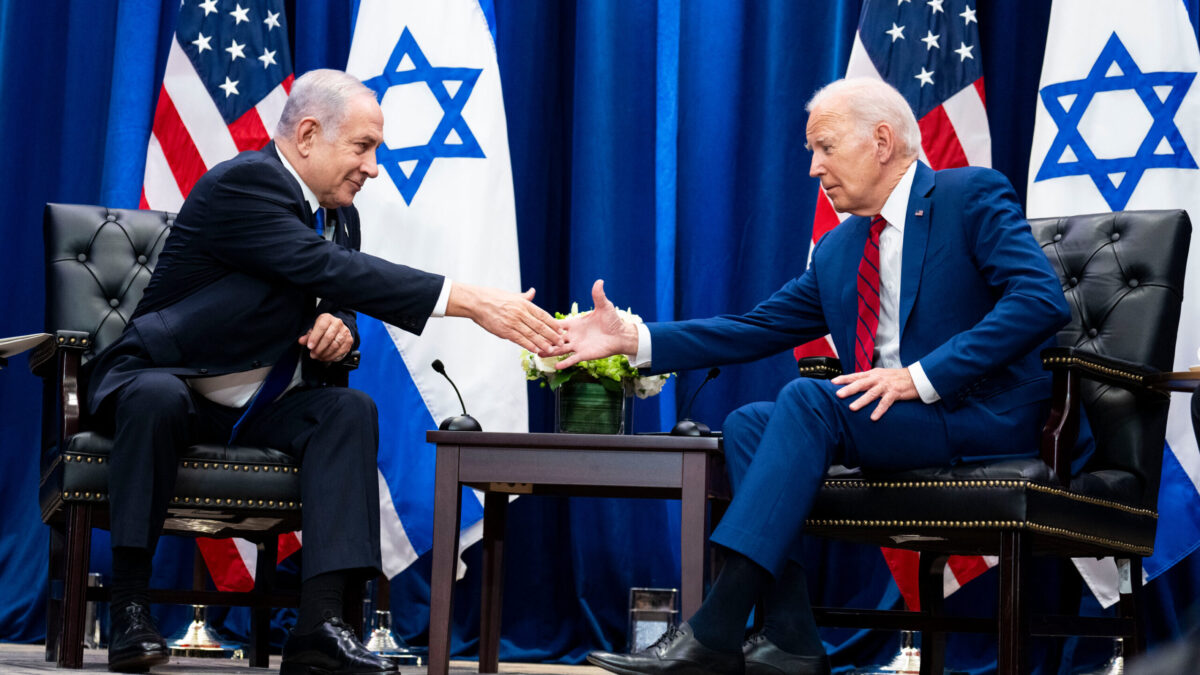The conflict between Israel and Palestine has been ongoing for decades, with various leaders and diplomats attempting to find a solution that works for both sides. However, the recent development due to Hamas attack and Israel’s retaliation to it has sparked controversy and raised questions about the future of the region.
Netanyahu Rejects Future Palestinian State: Controversy Ensues
Israeli Prime Minister Benjamin Netanyahu has publicly rejected the idea of a future Palestinian state, stating that he will not allow the establishment of a Palestinian state during his tenure. This declaration has been met with criticism from various quarters, including from within his own war cabinet.
Retired General Gadi Eisenkot, who lost his son in the fighting in Gaza, has spoken out against Netanyahu’s stance, suggesting that the Prime Minister is not telling the truth about the military goals in Gaza. Eisenkot has called for fresh elections, stating that there is “no trust” in Israel’s current leadership.
Israel’s Military Offensive: Netanyahu Vows “Complete Victory”

The tensions between Israel and Palestine have been escalating in recent months, with Hamas, a Palestinian militant group, launching a surprise attack on southern Israel. The attack resulted in the deaths of around 1,300 people and the taking of 240 hostages.
In response to the attack, Israel launched a military offensive in Gaza, with Netanyahu vowing to continue the operation “until complete victory”. However, Eisenkot has questioned the Prime Minister’s strategy, suggesting that those advocating for “absolute defeat” of Hamas were not “speaking the truth”.
The conflict between Israel and Palestine has long been a contentious issue, with various international leaders and diplomats attempting to broker a peace deal. The United States has been a key player in these efforts, with President Joe Biden recently discussing a two-state solution with Netanyahu during a call.
However, Netanyahu has spent his career resisting a Palestinian state, and his recent comments have been seen as a rejection of the two-state solution. This has led to criticism from the international community, with many arguing that a Palestinian state is essential for lasting peace in the region.
Controversy Over Netanyahu’s Military Goals in Gaza
The timing of Netanyahu’s comments has also raised eyebrows, coming as it does during a period of heightened tensions between Israel and its Western allies. The US has repeatedly tried to influence Israel’s military strategy during the conflict, urging more precision-guided attacks in Gaza and engaging in meaningful talks on a two-state solution.
However, Netanyahu has rejected these efforts, instead opting for a hard-line anti-Palestinian position. This stance has led to frustration in some American circles, with many questioning President Biden’s unconditional support for Israel.
Eisenkot Questions Netanyahu’s Strategy in Gaza Offensive
Despite the controversy surrounding Netanyahu’s comments, there are still those who believe that a two-state solution is the only way to create lasting peace in the region. Saudi Arabia has even dangled the prize of normalising ties with Israel as part of a ceasefire deal that includes a two-state solution.
However, Netanyahu’s latest comments appear to have ruled out this possibility, at least for the time being. The Prime Minister’s position has been criticised by many, including those within his own government, who argue that it is not in line with the interests of the Israeli people.
In the midst of this political turmoil, the people of Israel continue to grapple with the human cost of the conflict. The recent attack by Hamas has resulted in the deaths of over 1,300 people, and the ongoing military offensive has led to further loss of life.
Netanyahu Faces Mounting Pressure for Peaceful Resolution Amid Public Disconten
As the conflict continues to rage, there are growing calls for a peaceful resolution. Many Israelis are increasingly dissatisfied with their government’s handling of the situation, with a recent poll finding that just 15% of Israelis want Netanyahu to keep his job after the war.
There is also a growing recognition that the conflict cannot be solved through military means alone. The majority of Israelis now prioritise bringing the remaining 130 or so hostages home, over the potentially impossible aim of destroying Hamas.
Also Read: Trump Appeals to Supreme Court, Asserts Eligibility Amidst Colorado Ballot Disqualification
In the face of this growing dissatisfaction, Netanyahu‘s government is coming under increasing pressure to find a peaceful solution to the conflict. The Prime Minister’s hard-line stance may play well with some of his domestic supporters, but it is increasingly seen as a barrier to lasting peace.
As the conflict continues to unfold, one thing is clear: the status quo is unsustainable. The people of Israel and Palestine deserve better than a never-ending cycle of violence and retaliation. It is time for leaders on both sides to work towards a peaceful resolution, one that recognises the rights and aspirations of both Israelis and Palestinians.
